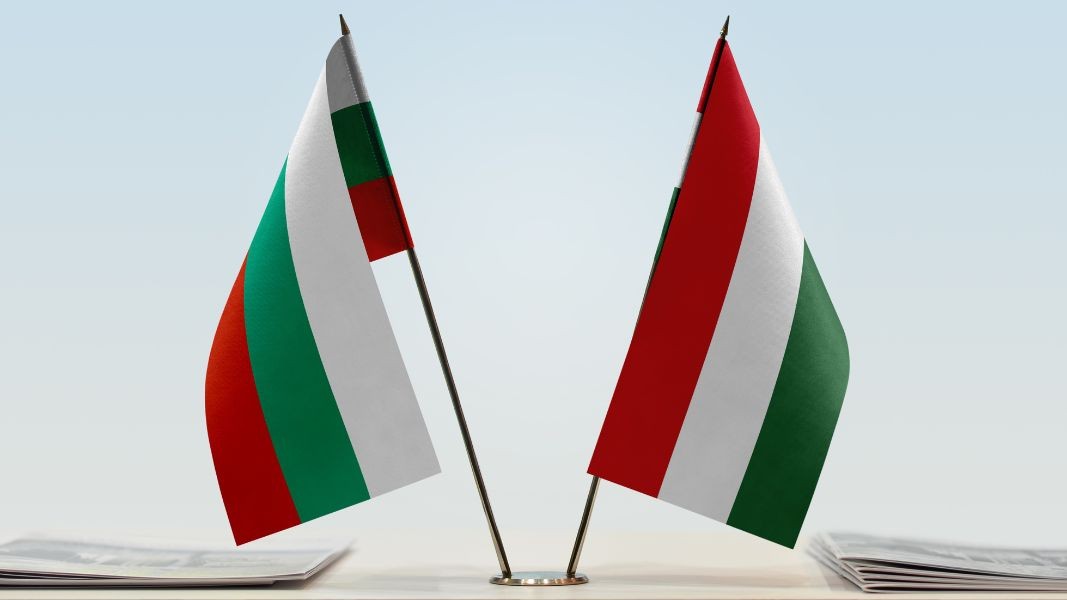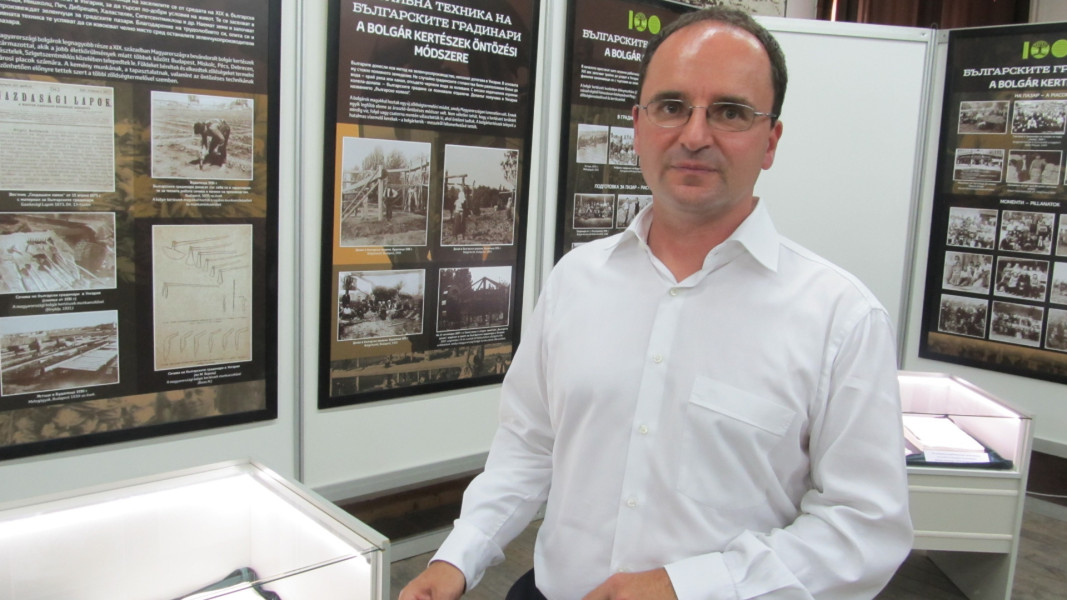October 17, 2025 will go down in history as the date on which the Minister of Culture of Hungary presented the document with which the Tradition of Bulgarian Gardening in Hungary officially entered the UNESCO National Register of Intangible Cultural Heritage. This is the most important event this year for the Bulgarian community in Hungary and it takes place on the eve of the Bulgarian-Hungarian Friendship Day – October 19, when the Bulgarian Orthodox Church honours St. Ivan of Rila.

In 2016, the parliaments of Bulgaria and Hungary adopted the date to commemorate the centuries-old friendly relations between the two countries, which is also an occasion to organize a number of cultural events.
"There is a Bulgarian connection in the choice of the date, because Béla III - the Hungarian king, took the relics of St. Ivan of Rila and transferred them to the then main basilica of the Hungarians. The bishop there did not believe in the miraculous power of the Bulgarian saint, but legend has it that then he became mute in a miraculous way. After that, Béla III decided to return the relics of St. Ivan of Rila and apologized to the Bulgarians for this mistake. So, this is the connection with the memory of St. Ivan of Rila and the Bulgarian-Hungarian Friendship Day,” says Dancho Musev, chairman of the Bulgarian Republican Self-Government in Hungary.

“On this occasion, a plaque was placed in the Church of St. Sophia in Bulgaria. There is a similar plaque in the Medieval Basilica in Hungary, where the relics were kept. This is also a very big sign of the relations between the two peoples, because in a Catholic basilica the story of the Bulgarian saint Ivan Rilski is told in Bulgarian and Hungarian.”
Gardeners laid the foundations of the Bulgarian community in Hungary

The preservation and popularization of the traditions and achievements of Bulgarian gardening in Hungary aims to strengthen the connection of young people from the Bulgarian diaspora with their roots and to preserve their national identity. A bit over 6,000 people today define themselves as Bulgarians in Hungary, Dancho Musev tells us. All of them are scattered around the settlements where Bulgarian gardeners worked at the beginning of the last century - around Budapest, Pécs, Debrecen and many others.

There are several stages of settlement of Bulgarians in Hungary – the third wave of Bulgarian emigrants went there after the Liberation of Bulgaria from Ottoman rule (1878). "Then, with the idea of a better life, tens of thousands of Bulgarians went, mostly from the Veliko Tarnovo region," says the chairman of the Bulgarian Republican Self-Government, himself a third-generation Bulgarian in Hungary.

"They settled around the big cities and started gardening. It was passed down from generation to generation and I myself grew up in a horticultural family. My grandfather, my father, were all emigrants. To this day, we have greenhouses, we grow tomatoes, although this is no longer our livelihood. There were tens of thousands of Bulgarians in Hungary in 1910. Even the local parliament was concerned about the fact that such a large number of Bulgarians worked in Hungary and always on Dimitrovden they returned to Bulgaria and thus exported what was produced in their country. Then the Hungarian state began to give them land and settle at least their leaders around Budapest. Along with these changes the Association of Bulgarians in Hungary was founded and this is the oldest minority organization, as other minorities here do not have similar ones."

Despite the two world wars, these gardening associations have not ceased to exist legally. "This tradition of Bulgarian gardening was maintained very actively until 15-20 years ago and Bulgarians produced the most," says Dancho Musev and adds that with the introduction of free market production and all global changes now there are no more than 20 families of Bulgarian gardeners left, in which even the youngest continue this tradition:

"In addition to gardening as a factor in Hungary, the connection of these people with Bulgaria has always been very strong and through donations in 1953-57 the Bulgarian Cultural Center was built in the heart of Budapest. This is a community center with a lot of activity. There is a Bulgarian restaurant here, our bands rehearse here, we give for rent part of the building to other minorities and also for commercial activities of Hungarian companies. In these difficult times we are trying to keep the unity of this small Bulgarian community unchanged. We want our children to continue this, to learn Bulgarian and to be proud to be Bulgarians and to preserve the values that we have inherited."
Author: Gergana Mancheva
Publication in English: Al. Markov
Photos: Lyaskovets Municipality, Pexels, BTA, Zdravka Maslyankova, gradinarstvo.lyaskovets.ne, bgsleda.co, bolgaregyesulet.hu
The Bulgarian team is returning home with four medals from the Youth International Olympiad on Astronomy and Astrophysics (IOAA) , held in the Romanian city of Piatra Neamț, the Ministry of Education and Science announced. The competition brought..
The Association of Bulgarian Schools in America invites children from the Bulgarian community in North America to participate in a competition dedicated to November 1 - National Awakeners' Day, the organization announced on its..
Robert Joseph Miller, Bulgaria’s Honorary Consul in Nevada, was awarded the prestigious “Golden Laurel Branch” of the Ministry of Foreign Affairs for his exceptional merits in maintaining the diplomatic relations between the US and Bulgaria. The award..
Fertility Europe , the pan-European organization that represents patient associations focused on infertility issues, has announced the start of the 9..
The so-called Seal of Biliteracy was created in 2011 in the US state of California with the idea that in the conditions of a globalized..
Today, in the Radio Bulgaria studio, we welcomed Helmut Matt – a writer, radio journalist and poet, who has maintained a special connection with Bulgaria..

+359 2 9336 661
